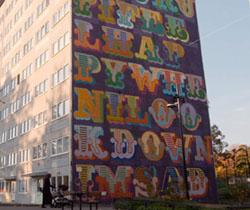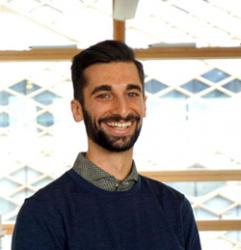While climate change may have been overlooked during the past decades despite the regularity of alarming scientific reports, its urgency is recently gaining more direct attention in public and international debate. A notable example is the awarding of the Nobel Prize in Economics to environmental economics Paul Romer and William Nordhaus, the latter known for his concerns about the impact of global warming on economic models. (See e.g. this article in the Guardian 'US economists win Nobel prize for work on climate and growth')
The recent report from IPCC similarly highlights the extreme urgency of reducing global warming. Even reaching the ideal, nearly utopian goal of +1,5˚ Celsius will mean that 70-90% of the world’s coral reefs are likely to disappear. To achieve the goal, we need to transform our societies on a massive scale never seen before.
It is estimated that we need a 20-fold increase in international development cooperation funding to reach the ambitious goals of Agenda 2030, How, then, can these finances be beneficially invested? This was one of the guiding topics of Sida’s annual Development Day, gathering participants from all over Sweden working within sustainable development, international development assistance and various NGOs. Seminars, panels and a workshop created a very productive learning experience around these issues.
How do we transform the global economy in order to enrich the world’s poor while reaching the 1,5˚ Celsius goal? In other words, how can we create, promote and institutionalise a green economy?
Carin Jämtin, Director General of Sida, stated that ”working towards a green economy supports the fight against poverty” by supporting a clean and safe environment, increasing safety and reducing conflicts regarding issues of food, water, energy and other fundamental needs. Moreover, it gives the most exposed populations access and formal rights to clean environment, health and food while supporting additional resources, including better quality and quantity of natural resources while reducing the pollution of these resources.
Carin Jämtin also reminded that ”the losers can be quite noisy”. Actors perceiving themselves as being on the losing end of sustainable development may resolve into using any means they deem necessary in order to defend their position. Achieving a sustainable global economy has recently cost the lives of several human rights defenders and sustainability activists. Strong and open societies remain an essential condition for switching to green economies.
The financial sector also needs to become a major player in this process. Citizens all over the world demand more green investment alternatives but there is still a limited supply. Currently, only one in ten of savers deposit their savings in sustainable businesses. To alter these proportions, more political control measures were suggested. Thomas Sterner, Professor in Environmental Economics at the University of Gothenburg, also strongly emphasised the impact of large-scale control measures such as the carbon dioxide tax. Sweden has a much higher tax rate in this regard than the rest of the world, although it has recently been adopted by France.
The very concept of growth was subject to scrutiny as well; Kate Raworth, Researcher in Economics at Oxford University, claimed economic growth as being a destructive system in need of re-shaping into a regenerative economy. Growth, however, does not necessarily imply constant economic gains, but may rather be viewed as a constant improvement of living conditions, a notion put forward earlier by Thomas Sterner. Securing the well-being of elderly, for example, is not in itself a threat to the environment, but may indeed be considered an expression of societal growth; it depends merely on what we add to its semantics.
Apart from green economies and sustainable growth, a line of argument during the day was most definitely local empowerment and ownership. Development assistance has shifted from sheer financing towards assuming a more facilitating role in relation to local residents. Investing in sustainable enterprise in emerging economies is a powerful means for reaching Agenda 2030, as long as we pay particular attention to local prerequisites, such as dependency on natural resources. This challenge needs to be approached by empowering local residents into owning their own development processes. Simultaneously enabling cultivation of a rich variety of crops in the countryside while maintaining green and blue qualities was a dominating perspective among the speakers.
This democratisation of development assistance does not, however, come without its hurdles. As Sweden celebrates 100 years of democracy, many democratic institutions all over the world are being severely curtailed. The voice of civil society is decreasing in many countries due to various factors. Moreover, today’s main global economic challenge is not pulling people away from the clutches of extreme poverty, but rather levelling them up towards higher standards of welfare while not compromising the mitigation of climate change. Ethiopia was mentioned as one country with such extreme ambitions. Increasing the use of green bonds was deemed a promising means to this end.
The seminars and panels were interrupted by a workshop in which participants were free to choose different urgent topics to address in groups of 5-6 each; my own group was assigned the challenges of off-grid solar energy solutions in the countryside of emerging economies and promoting equal access to water in shortage areas such as Cape Town.
Solutions and suggestions were presented after the workshop and many of them coordinated practical interventions with policy development. This contributed to the overall impression of the day as not merely consisting of an important debate on abstract themes but also of an equally important emphasis on action and movement.
This text is written by Johan Larson Lindal, Research Assistant, Mistra Urban Futures Stockholm, and covers the annual Development Day organised by the Swedish International Development Cooperation Agency, Sida, 17 October 2018.
Photo: Lotta Westerberg. Makhfi Girls High School in Faizabad, Badakshan, Afghanistan - one of many schools receiving support from Sweden








